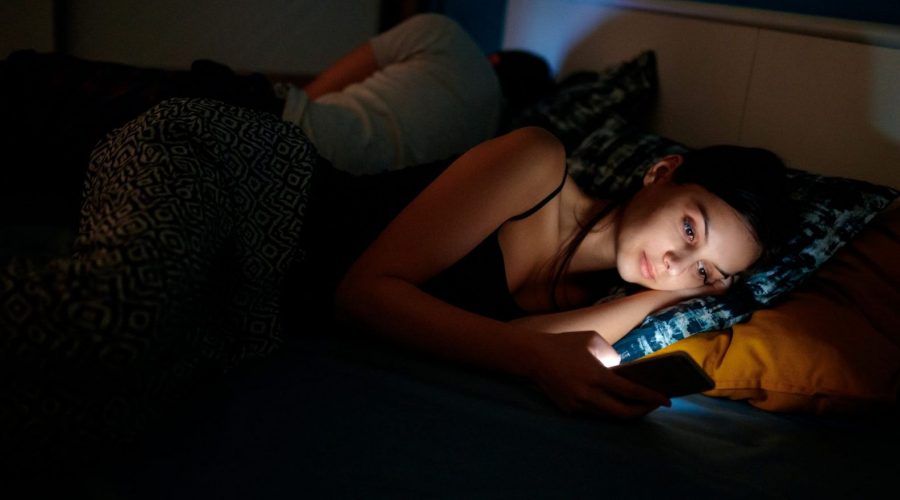Sleeping apart from your partner is healthy – so why is it so shameful?
New research claims that couples who share a bed have better quality sleep and lower levels of anxiety. Strong Women editor Miranda Larbi argues that, for many, the opposite is true.
Sleeping with a partner is obviously a lovely experience. In the winter, you’ve got someone to warm the sheets and in the summer, you can discuss the day’s events before slipping into slumber. And, of course, lying skin-on-skin next to someone does often inevitably lead to you sharing more than a duvet – be that just before lights out or first thing in the morning.
And presumably, all that cuddling and sexing is why a new study, published by the American Academy Of Sleep Medicine, has found that adults tend to sleep better together than they do alone. It claims that people who share a bed with their partner most nights experience less severe insomnia, less fatigue, more time asleep, falling asleep faster and less risk of sleep apnea. Not only that, but scientists also claim that sleeping as a pair is associated with lower depression, anxiety and stress scores.
You may also like
Sleeping tips: 6 bedroom hacks to help you get a better night’s sleep
I can see how sharing a bed might make you feel happy on waking if you’ve got a particularly docile partner who has identical sleep habits to you. Perhaps exclusively sleeping in separate beds robs you of the opportunity to share any thoughts or grievances – or it might be a sign that you just don’t like each other that much. But in my experience, when it comes to good quality sleep and subsequent energy and mood, sleeping alone is the only option.
When I first moved in with my partner, we had separate rooms (in a house share). We’d sleep together five nights a week, and sleep alone at the weekend or whenever someone was planning on having a later night than the other. Whatever nocturnal disruptions happened during the week were settled on the evenings that I was able to starfish in my own bed. I slept in later, went to bed earlier and could cough, pee, fidget and listen to the radio to my heart’s content.
Fast forward a year and we now live in a one-bed flat where he’s kept awake by my sneezing and I’m woken up every day at 4.45am when he gets up for work. It’s exhausting. I keep wondering whether I should go back to my parents for the odd night, just so that I can sleep alone in my old single bed.
Sleeping with your partner may be emotionally good for you, but if you sleep with someone who disturbs your sleep, there’s no way that sharing a bed can be the best option.
My parents haven’t shared a bedroom since I was at school, and my grandparents occupied separate rooms for most of their marriage. My dad snores and my grandma snored louder. I imagine that sharing a bed with either night after night would leave you so sleep deprived that you’d inevitably need to file for separation.
Snoring and misaligned routines can only have a negative impact on sleep quality
A 2009 study found that women who slept with a snorer experienced decreased sleep quality and more fragmented sleep. Interestingly, however, they didn’t always get a better night’s sleep when they slept alone for one night.
Research suggests that sharing a bed can enhance the amount of REM sleep you get (the bit of the sleep cycle that acts as our emotional spring clean) by 10%.If you’re used to sleeping with someone, you might find it harder to stay in that deep sleep stage when you’re sleeping alone (even if they snore) because that usual comfort is missing. But having more REM doesn’t necessarily mean you’re getting a better night’s kip than other people. And in fact, a 2017 study found that couples that get under seven hours per night are often more hostile towards each other… which could lead to more permanent solo sleeps.
What about couples who can’t afford to sleep in a separate bed?
We’ve been brought up to believe that loving couples spend most of their time together – waking and sleeping. Films only really ever show happy couples sharing beds and having loads of sex; gritty TV shows mark the decline of a marriage when the husband is relegated to the spare room.
A little space is healthy – we all know that – but why don’t we value that space in sleep as much as we do during the day? If your mate told you that they couldn’t socialise without their beau in tow, you’d probably think they were chronically codependent.
But what about these people who can’t sleep without someone in their bed? In the same way as having the odd evening to yourself, working in separate offices or having independent hobbies can lead to a healthy relationship, I’d argue that having the space to spread out and enjoy a deep, undisturbed sleep is a key tenant to a happy, healthy life. It’s just a shame that for so many of us, owning a second bedroom is nothing more than a pipedream.
Images: Getty
Source: Read Full Article
